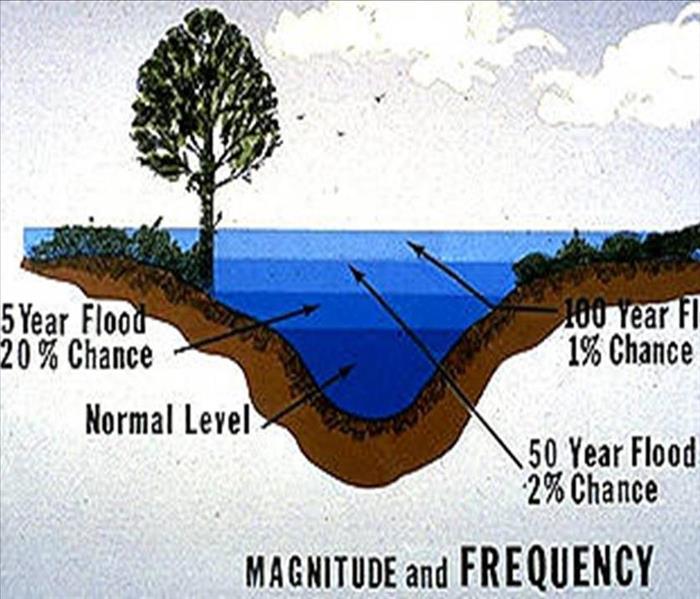The Truth About 100-Year Floods
10/17/2017 (Permalink)
 The above image includes a diagram demonstrating the magnitude and frequency of water levels during a flood.
The above image includes a diagram demonstrating the magnitude and frequency of water levels during a flood.
Whenever a strong hurricane or storm causes significant flooding, there is often talk of a 100-year flood. People will think a flood of that magnitude occurs once every hundred years, so they should be safe from harm for the next hundred years. Some base their decision to buy flood insurance on this false belief, putting them at risk of a catastrophic loss.
In order to determine the true frequency of floods, scientists will create a history of the area, tracking the frequency of different sized floods and the average number of years between them to develop the probability of a given sized flood in a particular year.
But rain volume alone does not always create the flood. The condition of the ground before the rain is critically important. If the area has received a lot of rain recently and the ground is already saturated, less rain is needed to flood the area. If the area has been experiencing a drought and the rain is falling fast, it is possible for the water to run off instead of soaking into the ground.
Factors such as a river basin and the addition of dams and levees will be considered. Once a flood recedes, high-water marks will be surveyed by scientists to estimate the maximum flows and streamgages will record the height and quantity of flow.
Explained by Property Casualty 360 in their article "The truth about 100-year floods," "The accumulation of data allows for a determination of the annual probability that a given stream or river will exceed its banks. This is known as annual exceedance probability, or AEP. A 1% AEP flood has a 1 in 100 chance of occurring every year, with an average recurrence every 100 years. This is the 100-year flood." They also predict during a span of a 30-year mortgage, "there is a 26% chance of a home in a 1% AEP, or 100-year flood area, of being flooded."
Questions about flood damage? Call SERVPRO of Northern Summit County today at- 330-650-4486.






 24/7 Emergency Service
24/7 Emergency Service